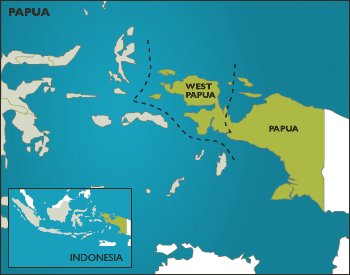Down to Earth No 56 February 2003
With major new oil and gas developments planned for Sulawesi, there is growing concern about the likely impacts on local livelihoods, forests, rare wildlife and the fragile marine ecosystem.
Central Sulawesi is being billed as Indonesia's next big gas producer by Indonesian companies with exploration projects in the province. Indonesia's state-owned oil and gas company, Pertamina, and Exspan Tomori Sulawesi - a subsidiary of Medco (see box) - say the province has huge potential for natural gas exploitation.

